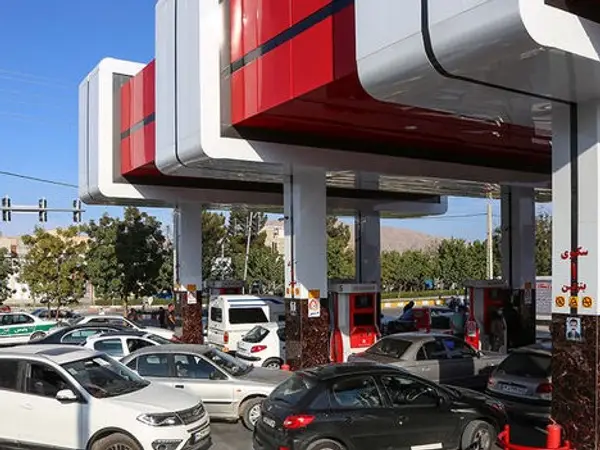Kayhan Daily, a flagship hardline newspaper in Tehran, has accused Israel and the United States of launching an apparent cyberattack on Iran’s gas stations.
The newspaper, controlled by Supreme Leader Ali Khamenei’s office, in an editorial called Israel and the US the leading suspects in what Iran has said was a cyberattack that for two days has paralyzed gas stations nationwide. The paper also said that creating a national intranet and cutting the country off from the Internet should be a top priority, similar to producing accurate missiles and military drones.
President Ebrahim Raisi had insisted on Wednesday that the cyberattack was meant to anger the people to create unrest in the country.
Iran’s interior minister Ahmad Vahidi said the incident was plot by “the enemy” before the anniversary of the 2019 November unrest, that has become a symbol of the regime’s brutality for opponents and critics. During a few days of nationwide protests in mid-November 2019, government security forces killed hundreds of protesters using military ammunition.
Vahidi said the enemy has plans for the anniversary and the disruption of the fuel system was the first act. However, he said that the public was calm and showed no reaction, which he said proved that people believe in the sincerity of the authorities.
Iran has not officially confirmed the source of the apparent cyberattack. The head of civil defense agency has said that authorities have not confirmed foreign involvement in the attack.
So far, only 700 gas stations out of around 4,000 have returned to normal operations. The incident affected smart cards that people use to buy rationed gasoline at half price. Pumps were not affected that gasoline was sold at higher prices.
Immediately as the disruption began, speculation started on Iranian social media that the incident was not a cyberattack and it was orchestrated by the government to raise gasoline prices, which are heavily subsidized in Iran. However, unlike November 2019 when a sudden hike in fuel prices led to unrest, this time the situation was calm.
President Raisi has taken credit for the peaceful handling of the situation and hardliners have compared it with 2019 when the fuel price hike was said to have been so sudden that it triggered immediate protests.
Fereydun Abbasi, a member of parliament’s energy committee and a former head of Iran’s nuclear energy agency said the cyberattack by “the enemy” was meant “to anger the people” to create unrest. He urged that major vulnerable points in the country should be defended. He added that the enemy uses its best scientists to disrupt people’s lives and will launch new attacks with novel plans.
Iran has experienced several major cyberattacks and sabotage attacks since July 2020. Its uranium enrichment facility in Natanz was targeted twice with devastating effect and a few months ago its railroad system was crippled by a cyberattack. Both Iran as well as foreign experts and media have said Israel was behind the attacks, but no one has claimed responsibility. But Israel has repeatedly said it will not allow Iran to produce nuclear weapons and is ready to use even military force.
